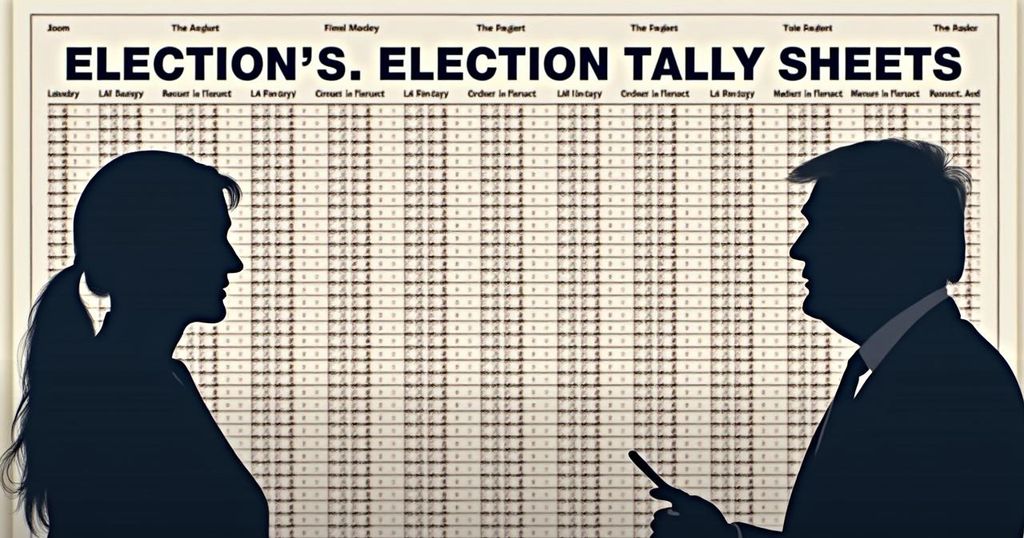Independent Experts Affirm Election Tally Sheets Indicating Maduro’s Defeat

An independent expert group, the Carter Center, has confirmed the legitimacy of tally sheets that the Venezuelan opposition presents as evidence of Nicolás Maduro’s electoral defeat. Despite Maduro’s administration declaring him the victor without adequate proof, the independent analysis underscores the need for transparency in the electoral process, drawing attention to the opposition’s securement of over 80% of voting machine records.
An independent panel of election experts has validated tally sheets presented by the Venezuelan opposition as evidence of Nicolás Maduro’s defeat in the country’s recent presidential election. During a session of the Organization of American States (OAS), an expert representing the U.S.-based Carter Center asserted that the electronic voting system functioned properly, with all involved parties aware of the actual results. This confirmation comes amidst ongoing disputes regarding the election results proclaimed by the Maduro administration, which asserted victory without providing substantiated evidence. The election, which took place on July 28, was monitored by two independent groups, including the Carter Center, invited by the government for oversight. The controversy revolves around thousands of tally sheets known as actas, which are crucial in verifying election outcomes in Venezuela. Each of the electronic voting machines utilized in the election produced multiple copies of these sheets, which political party representatives are entitled to obtain when transmitting results to the National Electoral Council. Following the election, authorities loyal to Maduro announced his election victory shortly after the polls closed but did not disseminate the detailed results typically provided in prior elections, attributing this to alleged hacking of their website. Conversely, the opposition coalition successfully gathered tally sheets from over 80% of the voting machines and made these documents public. In response, the government dismissed these records as fraudulent and initiated an investigation against various opposition figures, including Edmundo González, their candidate. Jennie Lincoln, who led the Carter Center’s observation mission, clarified that while the voting system is electronic and provides a tangible paper trail, the data collected by numerous poll watchers from both the opposition and the ruling party supports the validity of their claims. However, she refrained from declaring any candidate the victor, emphasizing that determining election outcomes lies within the jurisdiction of electoral authorities. The Carter Center has recently received the contested tally sheets via international mail, although details about their origins remain unclear as the organization has not responded to inquiries regarding the records. During the OAS session, member countries, including Argentina, Costa Rica, and the United States, have urged Venezuelan authorities to release comprehensive voting data to ensure transparency in the electoral process.
The article discusses the implications of recent electoral events in Venezuela, highlighting the role of independent observers in validating election results amidst allegations of fraud. The July 28 presidential election has become a flashpoint for political contention, with the ruling party’s claims of victory being countered by the opposition’s production of tally sheets. These sheets serve as essential evidence in the electoral process, ensuring transparency and accountability in a country where electoral integrity has been a contentious issue.
In summary, the recent validation of tally sheets by independent election experts has raised critical questions regarding the integrity of Nicolás Maduro’s re-election. The testimony of the Carter Center emphasizes the importance of transparent electoral procedures and the necessity for the Venezuelan government to disclose detailed voting data to uphold democratic principles. As member nations of the OAS continue to urge for electoral transparency, the situation in Venezuela remains precarious, necessitating close scrutiny by the international community.
Original Source: www.cbsnews.com







